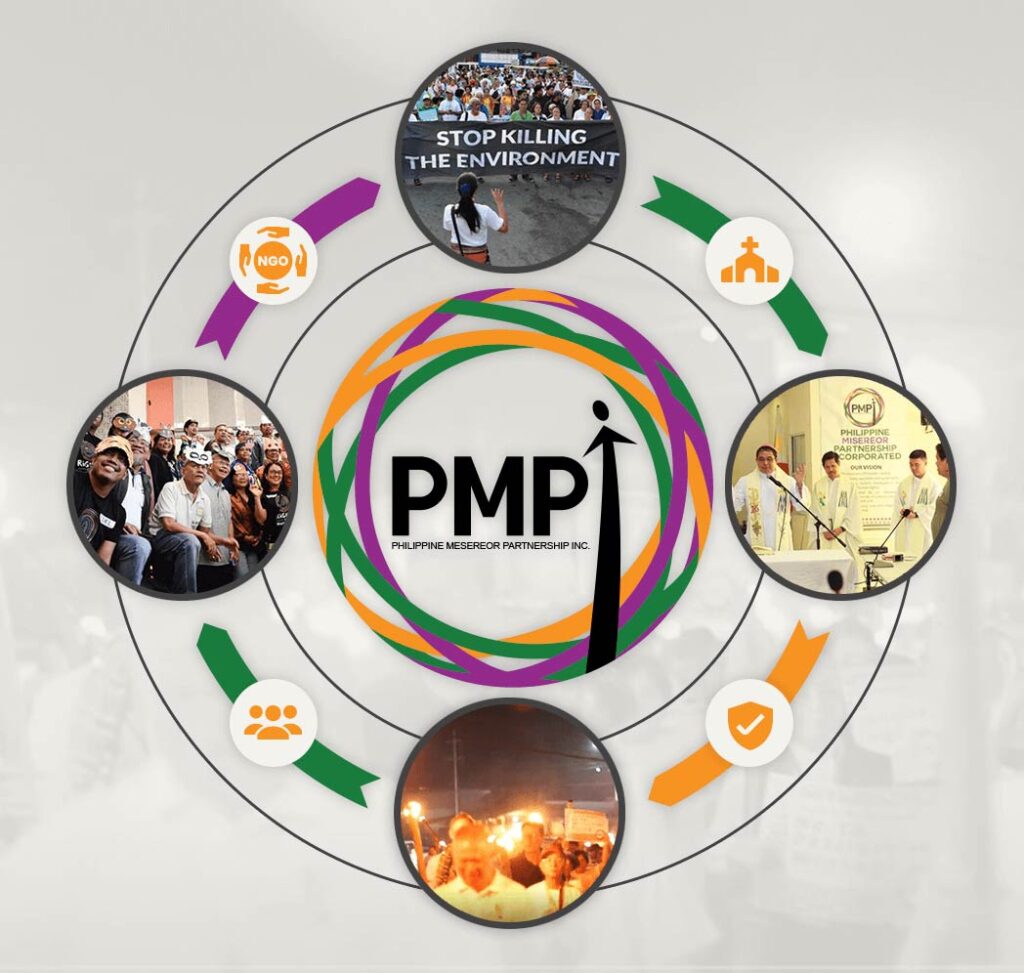
About Us
The Philippine Misereor Partnership Inc. (PMPI) is a social development and advocacy network of more than 250 church/faith-based groups, non-governmental organizations, and people’s organizations in the Philippines.
PMPI was formally established on March 13-14, 2003 during its first National Assembly held at the Subic Bay International Hotel, SBMA, Olongapo City.
PMPI is legally registered with the Securities and Exchange Commission on 20 January 2004. The network was formed as a result of series of consultations among organizations supported by Misereor which discussed a model of cooperation, coordination and partnership between these Philippine social development organizations and Misereor.
Vision of the Partnership
- is humane, equitable and sustainable;
- promotes holistic development and full realization of human rights;
- is animated by an empowered citizenry where diversity of cultures, religions and beliefs are valued; and;
- where justice, peace, love and integrity of creation reign supreme.
Mission of the Partnership
In its work for integral human development and social transformation, the PMPI commits to facilitate dialogue, exchange of expertise and experiences, and collective action among PMPI member organizations in addressing common development issues and concerns.
Structure of the Partnership
The General Assembly (GA)
The General Assembly is the highest policy-making body of PMPI. It is composed of representatives of all individual member-organizations and it convenes every three (3) years. It is a forum for a continuing dialogue and exchange of learning between and among people’s organizations (POs), non-governmental organizations (NGOs) and church-based groups and organizations. It is an avenue for leadership, confidence-building, and forging solidarity, grounded on issues and concerns articulated by the poor.
The National Coordinating Council (NCC)
The National Coordinating Council is the highest policy-making body of the network when the General Assembly is not in session. It is composed of one representative from each cluster, known as the “cluster point person”; the three regional Co-Conveners; one representative from Misereor-Germany; one representative from Catholic Bishops Conference of the Philippines (CBCP) Caritas Pilipinas (NASSA); and one representative from the Episcopal Commission on Social Action, Justice and Peace of the CBCP. The PMP National Coordinator and the Deputy National Coordinator sit in the NCC as members but have no voting power. The NCC convenes at least twice (2) a year.
The Co-Conveners Committee (CCC)
The Co-Conveners Committee (CCC) is the executive arm of the National Coordinating Council. It is composed of five members: one from each regional subdivision of the country (Luzon, Visayas and Mindanao) and one ex-officio member from CBCP-NASSA/Caritas Philippines. The CCC meets at least four (4) times a year.
The Clusters
Clusters are collective groupings of member-organizations based on geographical location and/or area of operations. The clusters are the primary focal points of the partnership. They are autonomous in nature and in operations. It is in the clusters where the particular development agenda appropriate to their context and situation are developed; and where collective actions and decisions are done. It is in the clusters where their particular sectors are engaged to contribute to the overall development agenda, national resolutions and agreements of the partnership. The primacy of the clusters in this regard shall be respected.
The National Secretariat
The Secretariat is the service arm of the partnership. It ensures coordination and communication between and among partner organizations, and between Misereor and the partner organizations. It assists the Co-Conveners and the NCC in the disposal of its duties and functions.
The Task Force
The Task Force is a group formed by the National Coordinating Council. It is a special body that provides support to PMP in terms of conceptualization, innovation, analysis of contingent and strategic issues and concerns deemed critically relevant to PMPI.